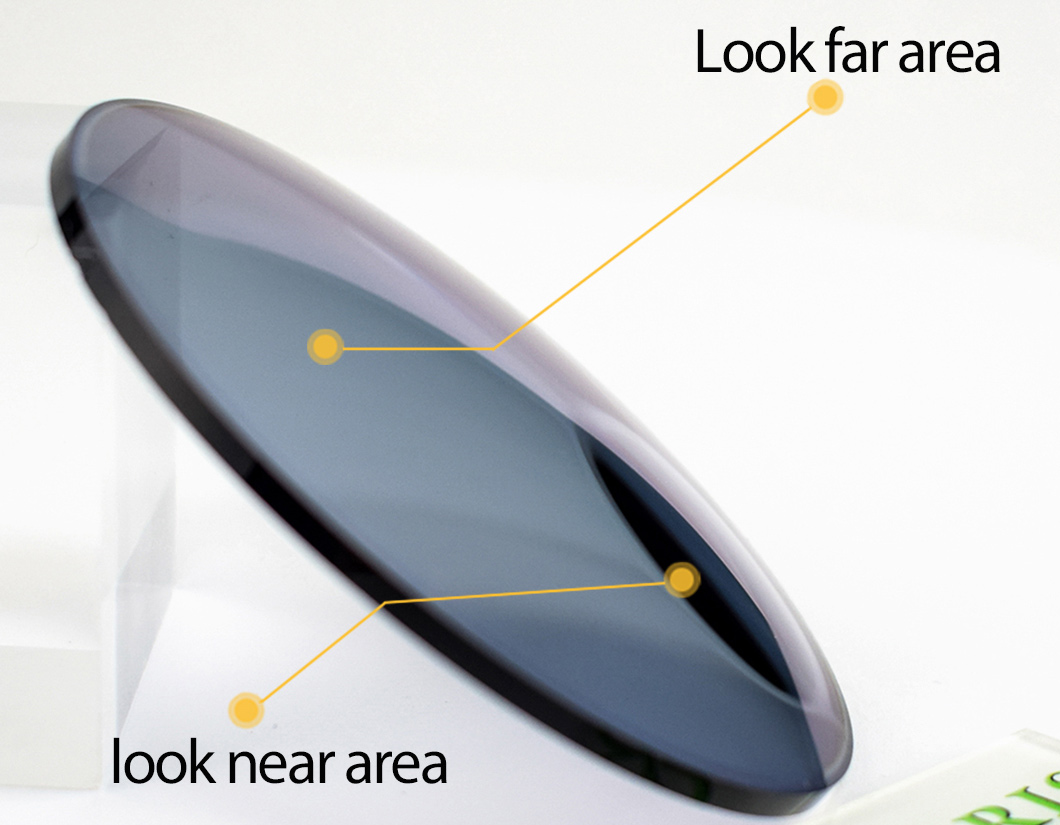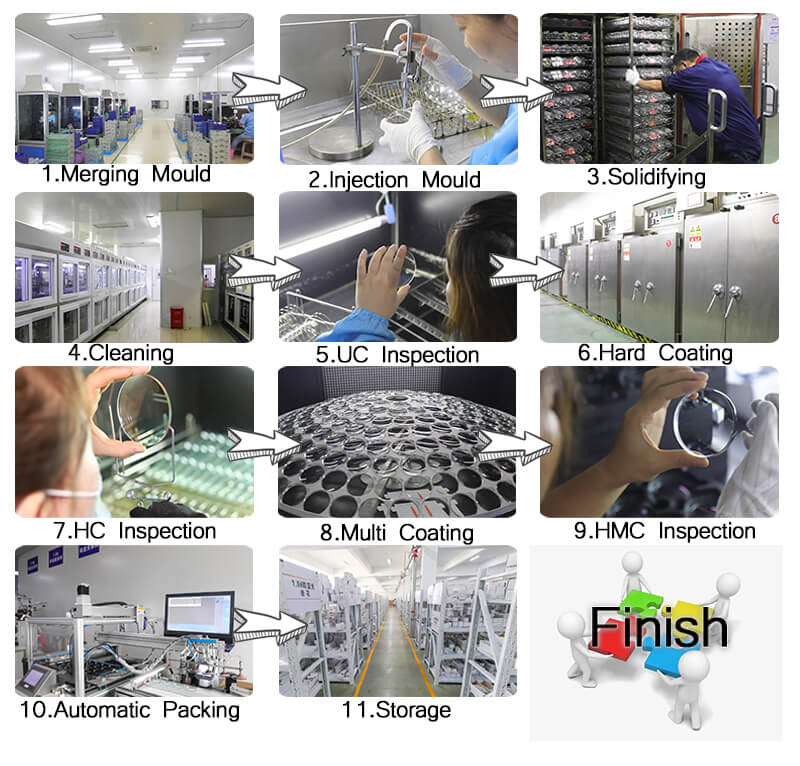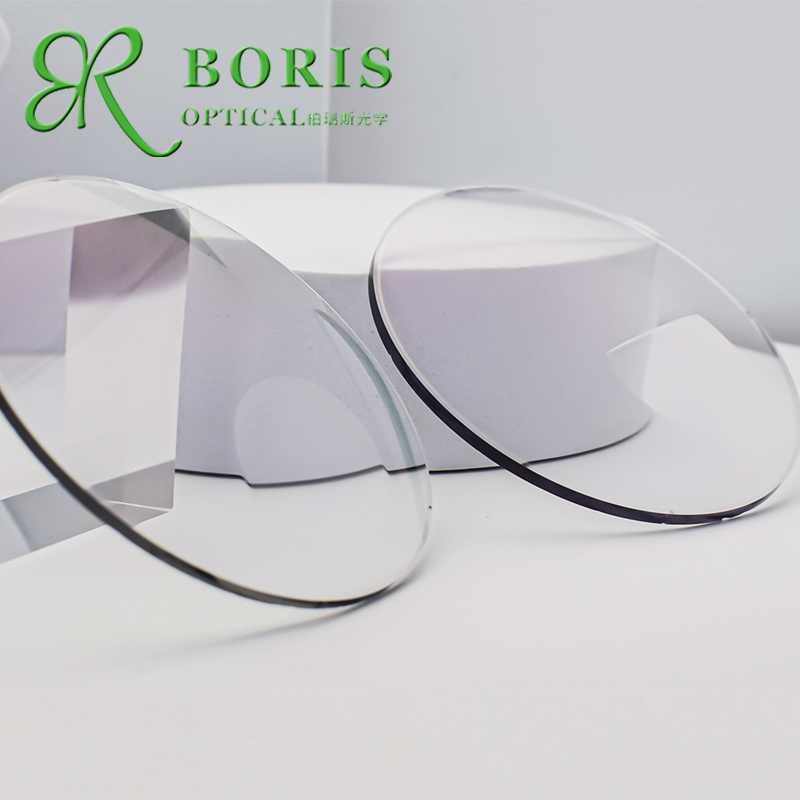1.59 PC Bifocal Invisible Photochromic Gray HMC Optical lenses

Production Details
| Place of Origin: | Jiangsu | Brand Name: | BORIS |
| Model Number: | Photochromic Lens | Lenses Material: | SR-55 |
| Vision Effect: | Bifocal | Coating Film: | HC/HMC/SHMC |
| Lenses Color: | White(indoor) | Coating Color: | Green/Blue |
| Index: | 1.59 | Specific Gravity: | 1.22 |
| Certification: | CE/ISO9001 | Abbe Value: | 32 |
| Diameter: | 70/28mm | Design: | Asperical |
What are the characteristics of glass lenses? High hardness, no toughness, easy to break when hit. It has high transparency and light transmittance of 92 percent. Chemically and physically stable, can resist the influence of all kinds of weather, and do not color, do not fade. Because of its heavy weight, it is not suitable for teenagers.
What are the advantages of resin lens? Resin lenses are made of diethylene glycol and propylene glycol lipid reaction polymerization. Light weight, good impact resistance, high temperature resistance, good light transmittance, close to the performance of glass lens, can block ultraviolet rays.

What are the advantages of PC lenses? PC lens also known as: space piece or space piece, is made of optical grade PC material by injection molding processing. It has light weight, high impact strength, good weather resistance, good light transmittance, 100% ultraviolet absorption, non-toxic, and environmental protection, with a wide range of development prospects.
Production Introduction

Most bifocals are used to replace two pairs of bifocals that are used to see far and see near, so the position and size of the bifocals' far-viewing area and near-viewing area should correspond to the original two pairs of glasses. If the near vision is more dominant, the subslices can be larger and higher positioned; On the other hand, if more time is spent looking far away, the sub-slices will be correspondingly smaller and lower in position. There is no one kind of design can meet the needs of different situations. It should be selected and matched according to the actual visual needs of the wearers, and sometimes different designs should be adopted to meet the visual needs of different situations with large differences.

Product Process










